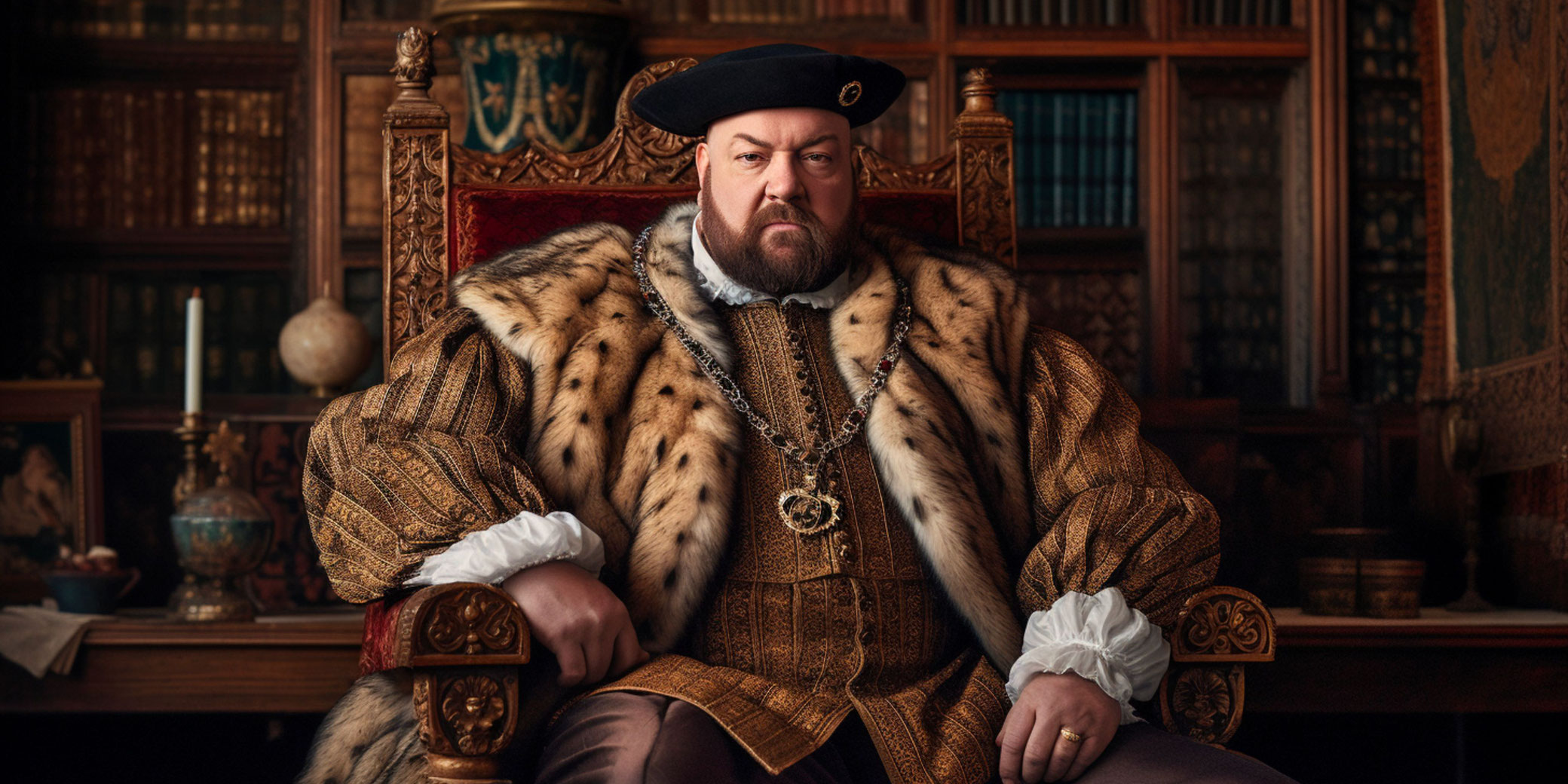
King Henry VIII, the second Tudor monarch of England, is a figure of immense historical significance. His reign, spanning from 1509 to 1547, marked a critical turning point in English history.
Henry VIII was born in 1491 to King Henry VII and Elizabeth of York, and he ascended to the throne at the age of 17 upon his father's death in 1509. Henry received a comprehensive education in theology, music, and languages, which contributed to his intellectual development. His early foreign policy endeavors aimed to assert English influence on the European stage, including the pursuit of an alliance with Spain through his marriage to Catherine of Aragon.
One of the defining aspects of Henry VIII's reign was his role in the English Reformation. Henry sought an annulment of his marriage to Catherine of Aragon, as their union had not produced a male heir. The Pope's refusal led to a break from the Roman Catholic Church. In 1534, the Act of Supremacy declared Henry as the Supreme Head of the Church of England, severing ties with the Pope in Rome. Henry ordered the dissolution of monasteries and religious houses, leading to significant changes in land ownership and religious practices.
King Henry VIII's reign left a profound and multifaceted legacy. The English Reformation fundamentally altered the religious landscape of England, leading to the establishment of the Church of England, which later became the Anglican Church. Henry expanded royal authority and centralized power in the monarchy. This had lasting implications for the balance of power in England. His six marriages and quest for a male heir created marital and dynastic controversies, influencing future succession crises. Henry was a patron of the arts and literature, fostering the English Renaissance. His reign contributed to the development of English common law and legal institutions.
Henry's reign was marked by political and religious turmoil, and his break with Rome had both positive and negative consequences. The English Reformation led to religious tensions and conflicts, including the Pilgrimage of Grace in 1536. His divorces, including the separation from Catherine of Aragon and the execution of Anne Boleyn, have raised questions about his personal life and decisions. Despite his six marriages, Henry's quest for a male heir was not realized in his lifetime.
King Henry VIII's reign, with its transformative religious changes and centralization of power, continues to shape the course of English history. His complex legacy encompasses both the tumultuous events of his reign and his contributions to the arts and culture. Henry VIII's impact on the English Reformation, monarchy, and society remains a subject of historical fascination and debate, underscoring the enduring influence of this Tudor monarch on the evolution of the English nation.
